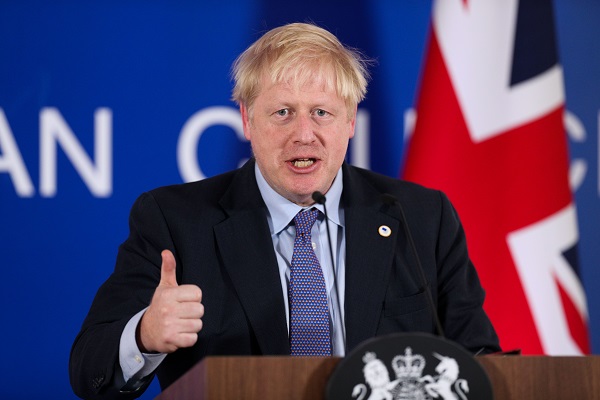London, UK Prime Minister Boris Johnson has said that there was a “body of information” to suggest an Iranian surface-to-air missile brought down a Ukrainian passenger plane that crashed near Tehran earlier this week.
Johnson’s comments on Thursday came the same day his Canadian counterpart Justin Trudeau said that he had seen evidence that suggested Iran’s missiles brought down the Kiev-bound Ukrainian International Airlines flight PS752 shortly after taking off from Tehran on Wednesday, killing all the 176 people on board, the BBC reported.
In a statement on Thursday night, Johnson said that the UK government was working closely with Canada and other international partners affected by the crash and that “there now needs to be a full, transparent investigation”.
“The UK continues to call on all sides urgently to de-escalate to reduce tensions in the region,” he said, adding that four Britons were among the victims.
It was previously reported that three British nationals – two engineers and an owner of a local dry cleaning business – had died. But Downing Street confirmed later that there was a fourth victim also.
Beside the Britons, 82 Iranians, 63 Canadians, 11 Ukrainians, 10 Swedes, four Afghans and three Germans were on board.
Echoing Johnson’s statement was Security Minister Brandon Lewis, who told the BBC that the UK agreed with the Canadians that the plane was shot down by a missile, adding it was “unintentional”.
But in response, an Iranian official also told the BBC that the reports of Iran shooting down the plane were “US propaganda”.
“Their claim without providing hard evidence to international community is worthless,” he added.
Meanwhile on Friday morning, the UK Foreign Office hardened its travel advice for Iran for the second time in a week.
It now advises against all travel to Iran and against all air travel “to, from and within the country”.
Wednesday’s crash took place just hours after Iran carried out missile strikes on two airbases housing US forces in Iraq, which were in retaliation to the killing of Iran Major General Qasem Soleimani in a US drone attack in Baghdad on January 3.










